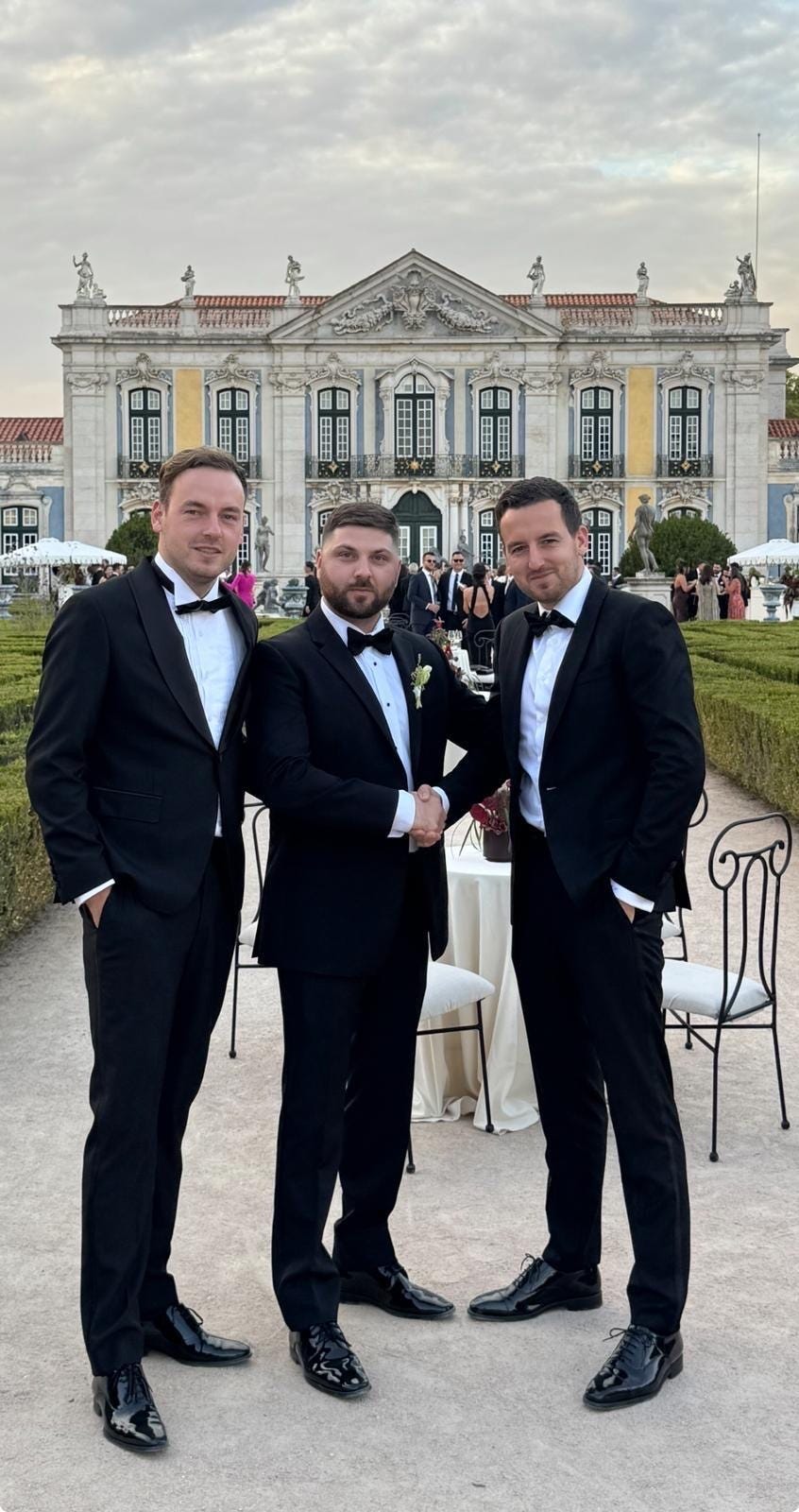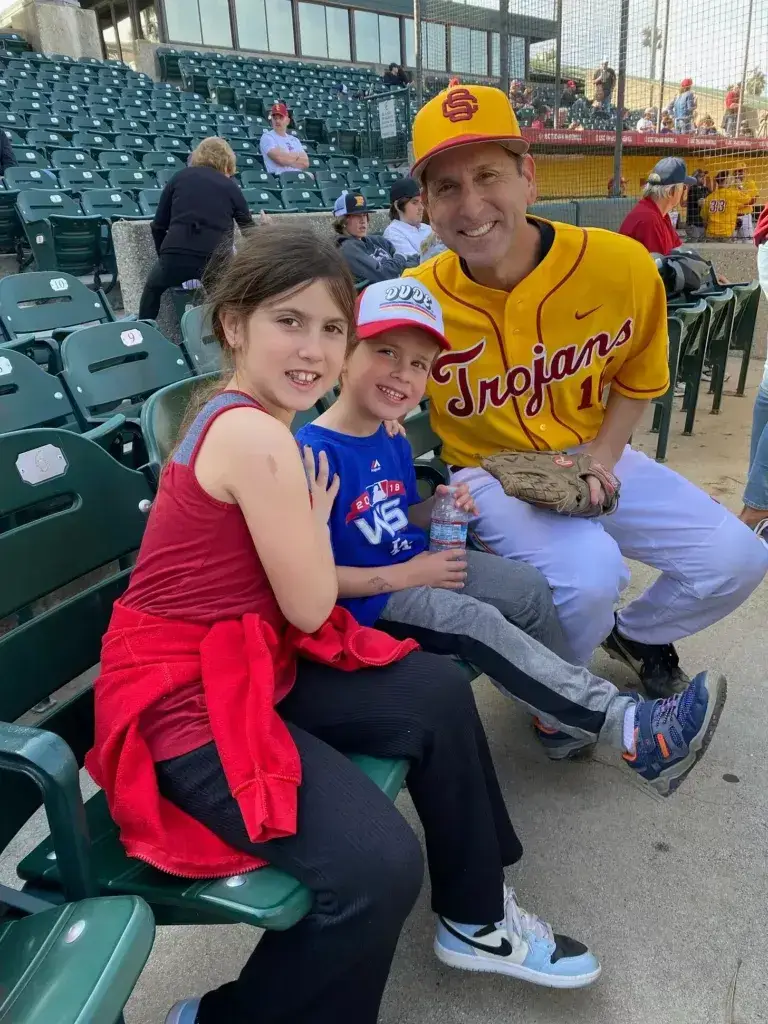Too many people collapse after sentencing. They count every unfair detail: the plea they felt forced into, the probation report that went against them, the hearing that spun out of control. They compare their outcome to everyone else’s, and the comparisons eat them alive. I know because I did it.
Andrew Adler didn’t.
We were driving through Danbury last month. Andrew had just been sentenced to 41 months. He’ll surrender to Lewisburg on September 30th. His sentence was longer than we expected, longer than it needed to be. Yet instead of replaying all the ways he thought the process failed him, his first words were about someone else:
“Hey, on our client call earlier this week, I was super excited to hear that Adam got such a shorter sentence than the government wanted. That’s wonderful. Please send him my best when you talk to him.”
That’s the contrast I want you to see: where envy usually lives, Andrew chose gratitude.
My Envy vs. His Gratitude
When I was sentenced to 18 months, I didn’t congratulate anyone. I obsessed. I looked at other defendants who got shorter sentences, at colleagues who were thriving, and thought: why not me?
I skipped weddings because I couldn’t sit across from someone thriving while I felt like a failure. I blew off the USC alumni baseball game because I couldn’t face old teammates who still had titles and careers. I scrolled LinkedIn and resented people who used to ask me for advice, now running firms, while I was headed to prison. My mom called it “going dark.” I had a gift for “doing dark.”
That spiral, envy feeding on itself, did more damage than my 18-month sentence. It ate through friendships. It isolated me from my family. It left me stewing in comparisons instead of preparing.
Aristotle defined envy as “the pain we feel when someone like us has something good.” That pain can sting worse than prison time. La Rochefoucauld warned: “Our envy always lasts longer than the happiness of those we envy.” Their party ends. The envy lingers. Schopenhauer compared it to rust: “As iron is eaten by rust, so are the envious consumed by envy.” And once that rust sets in, it eats through marriages, friendships, and the will to build.
I saw that rust again last week in a message from a father of two:
“Got 18 months, what a joke man. My case totally made my prosecutor’s career, but I got time anyway. My co-defendant got a year and a day. Total joke, more unfairness. I paid more money back than him and he gets a shorter sentence? And he only had one DOJ press release and I had three. Yup, three of those suckers. Some get no releases at all, and I know some people who cooperated like I did totally avoided prison. I know because I researched the cases on PACER and I keep sharing them with my useless lawyers to show how I got screwed. Call me asap.”
That message is rust. It’s collapse disguised as righteous indignation.
Andrew, by contrast, said this as we drove:
“Man, I can’t change 41 months, but I still love hearing these stories of people who got great outcomes. Maybe mine didn’t go as well, but I can’t say I didn’t do my best. Some people tell me the judge didn’t notice or care. That’s not my concern at this point. All I can do is prepare and appreciate the wins, even if the win wasn’t mine.”
That’s gratitude in the exact place where envy normally takes root.
Europe vs. Laguna
As I write this from a weekend getaway in Laguna Beach, Andrew is in Europe with his family at a wedding, fully present, grateful, celebrating someone else’s joy. No sulking in the corner. No quiet comparisons about what could have been. No running commentary about unfairness.

That image says more than any philosophy text: one man at a wedding across the ocean, raising a glass for someone else’s happiness, even with 41 months ahead of him. Another man (me years ago) hiding from weddings, skipping alumni games, scrolling LinkedIn in bitterness.
That’s the divide.
Acceptance vs. Collapse
Right after sentencing, many collapse. Not always onto the courtroom floor, sometimes into overeating, tobacco (I had enough Red Man for two lifetimes), chain-smoking, drugs, alcohol, nights alone, or silence at the table. Collapse looks like “I’ll deal with it later,” until there’s nothing left to deal with.
Andrew didn’t collapse. He didn’t love the outcome. He didn’t pretend it was fair. But he asked the only relevant questions: What can I do to make the most of this prison term and prove worthy of the love and support of my family?
Here’s his answer:
- He will write. Weekly reflections, short and steady, to show his family what he’s learning.
- He will teach. Using Prison Professors Charitable Corporation courses inside Lewisburg, so others can document their progress.
- He will read with purpose. Why he read the book, and how the book will help him move forward.
- He will exercise. Not to kill hours, but to clear his head and sustain a steady pace.
He told me, “I want my family to be proud of me while I’m inside, not just when I get home. Someday, my kids will know their dad was in prison. I know a stigma follows. Those DOJ releases on Google aren’t going away. I want to embrace it and find a way to contribute. If I don’t, I would truly feel like this was a wasted experience.”
That recognition, that the family serves time with you, is rare. Too many husbands call it “protecting the family” when they turn down visits. It isn’t protection. It’s avoidance. It leaves spouses and children carrying the sentence alone. Andrew is choosing a different path: letting his family see the work, answering their questions, and showing them what it looks like to build through a crisis he created.
Montaigne and the Worries That Never Come
Montaigne warned against exhausting ourselves with “misfortunes that never happened.” That’s what most defendants do:
- I’ll never really work again and earn without my license.
- Great, I have an MBA, but I can only work at KFC or Home Depot now.
- No one will ever trust me.
- I will always be judged for these damn DOJ press releases
- The stain is truly permanent.
They spend nights replaying disasters, and the replay drains what little energy they have left to build. It really is draining.
Andrew refuses that approach. He doesn’t deny there are collateral consequences. But he won’t live in a script that says his life is over. He accepts what’s in front of him: 41 months, a wife, child, and the responsibility to use his time in a way his family can respect.
Already, he’s contributing through Prison Professors Charitable Corporation, helping millions of people in prisons and jails. He’s also co-authoring a book with Michael Santos, not a vanity project, but a practical guide designed for people inside, meant to influence long after his journey with the system ends.
That’s how you answer Montaigne. You don’t live in “things that never happen.” You create things that will.
Building vs. Vanishing
Over the years, I’ve heard countless promises: “When my case is over, I’ll give back. I’ll mentor. I’ll help the nonprofit.” A few follow through. Most don’t, even some of the really rich ones who saw the injustice first hand: the overreach, the machiavellian tendencies of a prosecutor to advance their career.
Example!
Two wealthy executives in the South repeatedly told me they would support the charity once their cases closed. I never asked–they offered. Their charges were dismissed. I wished them well, then told them we’d welcome their efforts to help the Prison Professors Charitable Corporation. Unfortunately, they chose to “move on” and defaulted to “ we never want to talk about this terrible system again. Just need some time to decompress, soak it in. Let’s circle back in 2027.”
That’s their choice, and I wish them well. But it’s also a missed opportunity. They had the ability to turn their experience into something useful, to help men and women inside who don’t have the same resources or family support. Again, they saw the injustices firsthand, the government overreach, the system that makes failures of so many. They told me they wanted to help. Instead, dismissed the case; they are gone. Have a nice week!
Andrew is choosing the opposite. He’s taking the stigma that comes with a conviction and turning it into an asset for his family and for men he’ll never meet.
That’s the divide I see year after year: some vanish, some build.
The Reader’s Choice
This isn’t a tribute to Andrew. It’s about you.
You can collapse, keep a scoreboard, complain about unfairness, disappear from your family, and live inside imagined disasters. I did it for years–no fun! Or you can build, accept what’s in front of you, adopt gratitude, involve your family, and contribute to something bigger than you.
Kierkegaard wrote: “The most common form of despair is not being who you are.” Despair shows up in silence, in hiding, in letting the DOJ’s press release define you forever.
Andrew is choosing the opposite. He isn’t hiding. He’s building. He’s showing his family who he is, by writing, teaching, documenting, celebrating others, even at a wedding in Europe weeks before his surrender.
So ask yourself: are you collapsing, or building?
Justin Paperny
P.S. What Andrew embraced quickly, gratitude over envy, I eventually embraced, too. Photo below is from the USC Alumni game last year.




